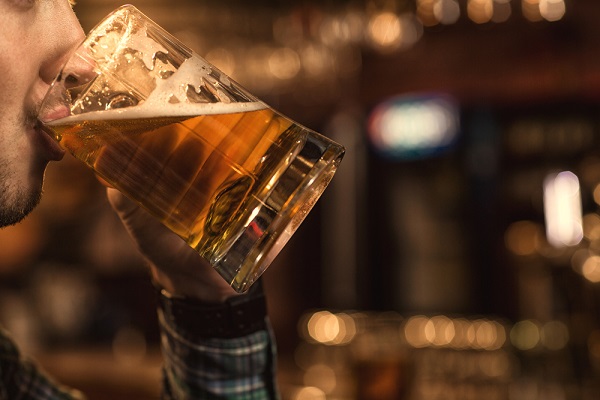Ryanair is spearheading discussions on passenger safety by advocating for a limit on alcohol consumption at airport bars.
Chief executive Michael O’Leary has voiced concerns over increased aggression on flights, attributing this trend to the mix of alcohol and drugs among travellers.
Call for Alcohol Restrictions in Airports
Ryanair’s chief executive, Michael O’Leary, has proposed a two-drink limit at airport bars in an attempt to prevent increasing incidents of unruly behaviour on flights. His comments follow a surge of violent incidents on aircrafts, particularly assaults on cabin crew, which have become a major concern for airlines. O’Leary attributes a part of these issues to holidaymakers mixing alcohol with other substances, heightening their aggression and instability during flights.
Airlines’ Struggle with In-Flight Misconduct
Identifying intoxicated passengers at airport gates poses a significant challenge for airlines. O’Leary mentions, “As long as they can stand up and shuffle, they will get through.” The misbehaviour often becomes evident only after take-off. He stressed that while enjoyment of alcohol is not discouraged, there is a clear parallel with the prohibition of drink-driving, emphasising the potential dangers of being inebriated at 33,000ft.
Implementing the proposed restriction would require technological solutions, enabling computers at airport bars to communicate and enforce this limit. Despite opposition from airports, which claim that they do not serve drunken passengers, O’Leary notes that companions of intoxicated passengers can still obtain drinks.
Impact of Delays and Alcohol Consumption
The stress of flight delays exacerbates the issue, with passengers turning to alcohol during extended waiting times. O’Leary cites that while most travellers arrive shortly before their departure, providing just enough time for a couple of drinks, delays can lead to passengers consuming excessive amounts. He advises opting for non-alcoholic alternatives during such waits.
Ryanair’s strategy to counteract this involves stringent measures on certain routes, including searching cabin bags for concealed alcohol. O’Leary remarked on past instances where passengers would disguise vodka in water bottles. Today, the combination of alcohol and other substances intensifies the unruly behaviour witnessed among passengers.
Training Cabin Crew and Sharing Information
Ryanair is proactive in managing in-flight issues by training its 14,000 cabin crew to handle aggressive passengers effectively. Sinead Quinn, who oversees the training, indicated that Ryanair shares information about problematic passengers with other airlines to prevent further incidents. The challenge is particularly prevalent in the UK, especially in regional areas, and impacts various demographics including families and unexpected groups.
The airline’s policies have led to the banning of certain passengers from future flights, a measure deemed necessary to maintain safety and order on board. This exchange of information across airlines acts as a deterrent and helps flag potential risks before they escalate.
Historical Context and Early Initiatives
Before the Covid-19 pandemic, Ryanair had already advocated for restrictions on early morning drinking at airport bars. This initiative was part of a broader strategy to address disturbances caused by alcohol consumption prior to flights, such as the notable incident in 2018 at Dublin airport leading to a mid-flight diversion to Ibiza. O’Leary has consistently highlighted the need for stricter regulations to curb these disturbances.
The airline’s efforts to promote safer travel environments coincide with their growth strategy, including the introduction of new routes. As Ryanair expands, ensuring passenger safety remains integral to their operations.
Government Involvement and Future Outlook
O’Leary has called on the new Labour government to abolish Air Passenger Duty (APD) for all travel. He argues that as an island economy, the UK should foster growth in low-cost air travel to bolster tourism and economic prosperity. This could potentially offset some adverse effects of APD, which currently imposes a £13 tax, making the UK less competitive against other EU states reducing their travel taxes.
According to O’Leary, removing APD could lead to significant growth, with projections of 65 million passengers per annum by 2030. In response to scrapping APD, Ryanair pledges the creation of 1,000 new jobs, 20 new UK-based aircraft, and substantial traffic growth.
Conclusion
Ryanair’s proposal to limit drinks per boarding pass at airport bars reflects a growing concern in the aviation industry about alcohol-induced disruptions. Through preventative measures and government cooperation, the airline aims for enhanced passenger safety and streamlined operations.
The airline seeks to balance passenger enjoyment with safety through suggested regulatory changes.
Ryanair’s efforts demonstrate a commitment to reducing in-flight disturbances while pursuing growth in the UK air travel sector.

